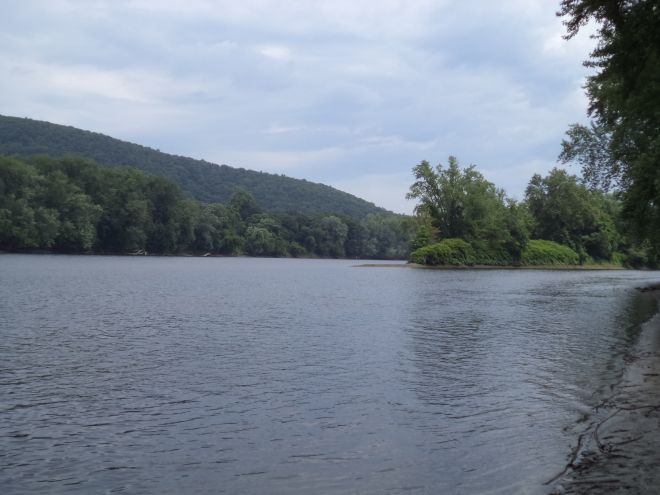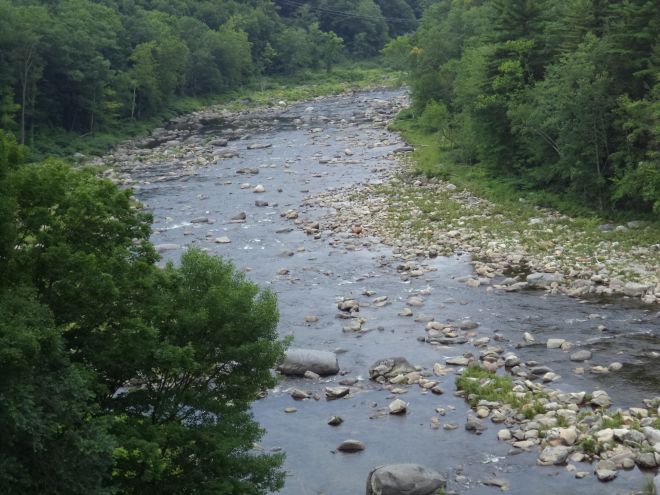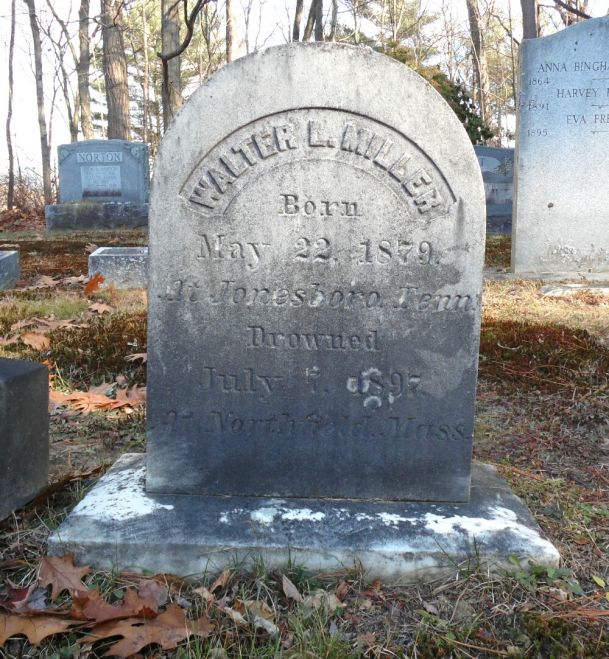
In the History of the Town of Whately, Mass by James Crafts, there is a peculiar entry in the genealogy section of the book. Under Rodolphus Belden’s name, there is a listing for the second son, Ernest Lincoln Belden. After noting his birth (in 1866) there is the following, “was drowned while bathing.” The drowning part is not unusual, as drowning deaths were often noted in family histories. The odd part is how he drowned. Taken at face value, it would seem that young Ernest, at an unknown age, was bathing (probably in the river) and somehow drowned. The thought that comes to mind is that he was rather stupid, to be blunt. How could someone drown while bathing? Common sense would tell a person that bathes in a river to pick a place that is shallow, with calm or still waters. Common sense would also tell a bather to stay close to shore, where their towel or clothes would be. Common sense would tell a bather to take his head (and body) out of the water if he felt in danger of drowning. I was willing to write him off as a casualty of stupidity until I discovered more such deaths.
I had begun compiling a list of drowning victims in the Connecticut River Valley after I noticed that many families had drowning victims in their family trees. I was curious if drowning was a great danger of 18thand 19th century life, and if swimming was a popular skill that Valley citizens possessed. As I made this list, I became curious as to why they drowned. For many names on my list, there is no reason given, only the bare information that they drowned, sometimes listing the body of water. It was only when I began looking at newspapers accounts of the second half of the 19th century did I begin to see explanations for drowning deaths. Many of the drownings were the result of boating accidents, or trying to cross a river on foot or by horse. Some drowning victims were listed as intentional suicides. I also found 16 other deaths, besides Belden, of “while bathing.” Some of these went on to describe if the victim was a swimmer, and how many other people were with him.

A picture was beginning to form, of bathing parties at the river. Young men (no female drowning victims were listed as “drowned while bathing”) would gather at the river and bathe. They go into the middle of the river, where there was likely horse play, splashing and fooling around. In one case, it was reported that the boys who could swim, had a race and swam away, leaving behind the boy who could not swim. This poor boy then drowned while trying to get back to shore. Bathing, it would seem, is a fun social activity, not a private somber one.
After finding the 17 cases of bathing deaths, I began to wonder if bathing could mean swimming. I had found only two cases where the cause of the drowning was listed as “cramps while swimming.” I also noticed that all of the bathing deaths occur in the hottest months of the year, May-September. Perhaps “bathing” was the excuse that these young men used to go and play in the water with their friends. Of the 17 “bathers,” we know that 14 of them were children or teenagers. These groups would probably be the most tempted to “bathe” in the river and perhaps behave recklessly or dangerously. What bathing occurred was probably by accident, as the boys were there to do anything but wash themselves.
In the American Heritage Dictionary bathe is defined as: “to go into the water for swimming or recreation.” In the Oxford English Dictionary bathe is “to take a bath, to plunge or immerse oneself in water or other liquid, so as to enjoy its influence.” Both of these definitions make a strong case that “bathing” is a euphemism for swimming.
Drowning is an ever present danger to any swimmer. To those swimmers (or bathers) in the 19th century who swam in waters without benefit of controlled depth or current, and without any kind of lifeguard, drowning could be the inevitable result.
